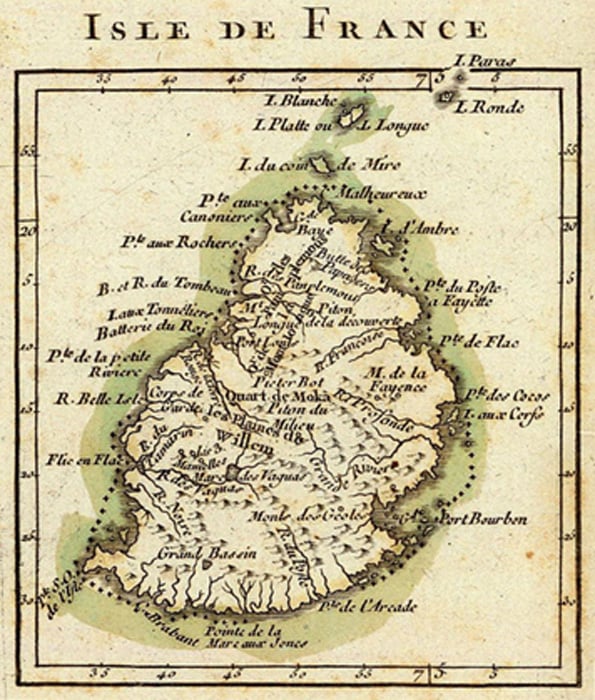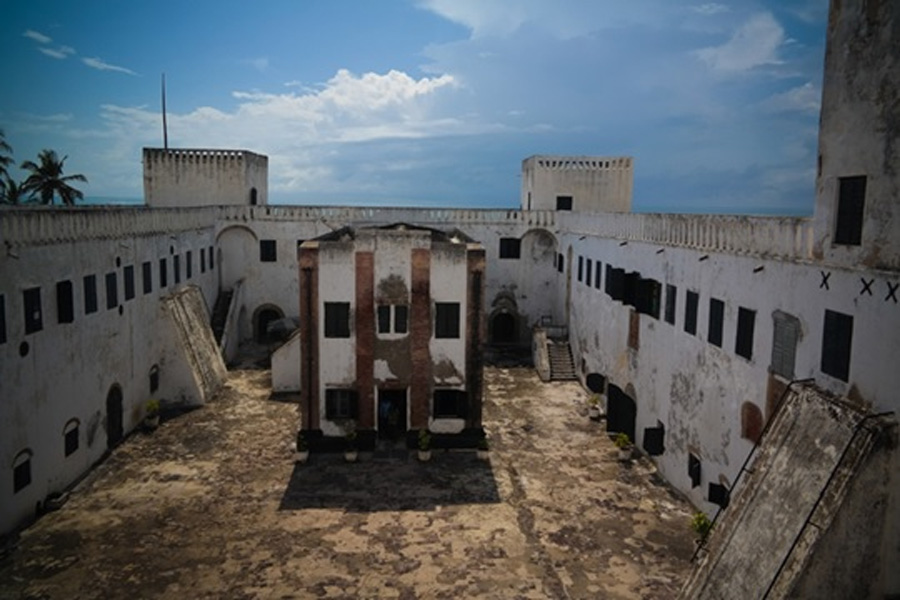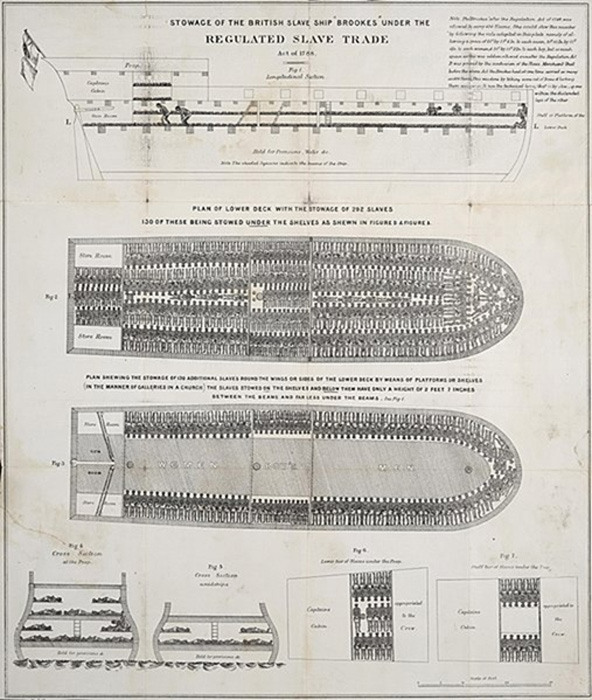
Le Morne, Mountain of the Slave Maroons in Mauritius
There is a legend that marooned slaves jumped off the high cliffs of a mountain to their death into the sea, when they saw a ship approaching, because they believed the ship was sent to capture them, yet the ship was sent to inform them of their manumission. At the south-western tip of the island of Mauritius, a tropical lush, green jewel in the Indian Ocean, towers the brooding Le Morne mountain, declared a world heritage monument to the abolition of slavery by UNESCO in 2008.

French map from 1791 depicting Mauritius (then called "Isle de France"). (Public Domain)
During the 10th century Phoenicians and Arab mariners named the island Dina Robin, but they did not settle. Neither did the Portuguese who visited the island in the late 15th and early 16th centuries. The Portuguese had built Elmina Castle (in Ghana, Africa) which became a slave trade fortress and had no need for another in the Indian Ocean. Mauritius did not offer the gold they were seeking.

Aerial Interior view to Elmina castle and fortress with church, Ghana (Fotolia)
Slaves Set Foot in Mauritius
By the late 16th century, the Dutch named the island after Mauritz, the Prince of Orange but they only settled on the island by 1638. A settlement required labour and thus the Indian Ocean was in a flurry with slave ships, importing human cargo from Africa, Madagascar, Indonesia, China, India and the Seychelles to the tiny tropical island.

Stowage of the British slave ship Brookes under the regulated slave trade act of 1788. (Public Domain)
One can scarcely imagine what humans had to endure to be cramped into a space between the deck and the hold, lying spoon-to-spoon next to another wretched stranger. One has no control over hearing the moaning, groaning and screams of fellow captives; no control over smelling the reek of faeces, urine, vomit, body odours and sometimes rotting flesh; no control over the thirst burning the dry throat, parched swollen tongue, and the hunger gnawing at the soul and the body; no control over the cramping of limbs, shackles biting into the flesh, fever racking convulsions and no control over the putrid air one breathes. A human being is reduced to a state where the only control remaining over his or her senses, would be the choice to close or open one’s eyes to the surrounding horror and suffering. Little respite was offered when in good weather slaves were forced to dance on deck, to keep them alive through exercise and avoid loss of income.




